Monday 23 June 2014
Perth researchers have shown that twice-weekly exercise can improve sexual function in prostate cancer patients by 50 per cent.
Now, they’re calling on Perth men to participate in a new study to find out why exercise works, and how effective it can be on a broader range of patients.
One in six Australian men will be diagnosed with prostate cancer, and 90 per cent of them will report some form of sexual dysfunction during or after their treatment.
“Men think about sex a lot – on average, every 45 minutes which is more often than they think about food or sleep,” says Dr Prue Cormie, a senior research fellow at Edith Cowan University. “So it’s not surprising that sexual dysfunction is the most frequently identified issue of importance among prostate cancer survivors.”
Last year, Prue and her colleagues at the Edith Cowan University Health and Wellness Institute put a group of men with prostate cancer through a supervised exercise program involving twice-weekly group-based sessions of resistance exercise such as weight lifting, and aerobic exercises including walking and cycling.
“After three months, the men involved in the exercise program had a 50 per cent greater level of sexual activity, which was largely driven by an increase in sexual desire,” says Prue. “We observed significant improvements such as gains in muscle mass, as well as improvements in fatigue, depression, anxiety, strength, fitness and quality of life that we believe contributed to enhancing men’s libido.”
Not only is exercise effective, but it also offers a more patient-friendly and cost-effective treatment compared with traditional sexual dysfunction management options such as Viagra, penile implant surgery, or the injection of drugs directly into the penis.
“We’ve shown that exercise is having a positive effect, so now our next step is to look at a broader range of patients undergoing different prostate cancer treatments to help us explain why,” says ECU Health and Wellness Institute co-director, Professor Daniel Galvão.
The team at Edith Cowan University would like to hear from men who are concerned about their sexual wellbeing, who are receiving treatment and/or are within six months since having surgery, finishing radiation therapy or completing hormone therapy for prostate cancer.
“The exercise routine is fairly straightforward,” says Mr Lee Giampietro, who participated in the initial study and has chosen to continue exercise treatment. “I’d certainly encourage other men out there to get involved in the next phase of the study to help improve treatment options, and reduce of the big stresses that come with this kind of cancer.”
For more information on the study, head to: http://bit.do/exercise
Prue was the winner of the Western Australia state competition of FameLab – a global science communication competition for early career scientists.
Media call:
Prue will be working with prostate cancer patients at the clinic today, Monday 23 June. She’ll be available for interview with patients exercising at the clinic between 9-10am at Edith Cowan University Sport and Fitness Centre, Building 21, Cnr Learoyd and Woodsome St, Mount Lawley, WA 6050. Map available at: www.ecu.edu.au/fas/sport/location.php
Contact Dr Prue Cormie: 0422 252 059, (08) 6304 3418, p.cormie@ecu.edu.au
Media contacts:
Laura Boland, Science in Public/FameLab Australia, 0408 166 426, (03) 9398 1416, laura@scienceinpublic.com.au
Niall Byrne, Science in Public/FameLab Australia, (03) 9398 1416, niall@scienceinpublic.com.au
David Gear, Edith Cowan University, (08) 6304 2288, d.gear@ecu.edu.au
Background
The upcoming study
Sexual dysfunction is one of the most common and distressing side effects of prostate cancer. Despite being a critical survivorship care issue, there is a clear gap in knowledge surrounding the optimal treatment of sexual dysfunction in men with prostate cancer.
This study will examine whether exercise aids in the management of sexual dysfunction and explores if an integrated treatment model incorporating pharmacological, exercise and psychosexual therapies maximises improvement in sexual health. The study will also explore what it is about exercise that helps improve sexual wellbeing following prostate cancer.
The study will be open for registration in Perth on 1 July 2014. The study will also be open to men in Brisbane and Northern NSW later in the year.
For further information please contact:
Prue Cormie on (08) 6304 2329, p.cormie@ecu.edu.au Or head to: www.ecuhealthwellnessinstitute.org
Acknowledgements
The upcoming study has been funded by the National Health and Medical Research Council. The team of investigators includes: Prue Cormie, Daniel A. Galvão, Suzanne K. Chambers, Robert U. Newton, Robert A. Gardiner, Nigel Spry, Dennis R. Taaffe, David Joseph, M. Akhlil Hamid, Peter Chong, David Hughes, Kyra Hamilton.
FameLab
In 2014, the British Council and Fresh Science have joined forces to bring FameLab to Australia.
FameLab Australia will offer specialist science media training and, ultimately, the chance for early-career researchers to pitch their research at the FameLab International Grand Final in the UK at The Times Cheltenham Science Festival from 3 to 5 June 2014.
FameLab is an international communication competition for scientists, including engineers and mathematicians. Designed to inspire and motivate young researchers to actively engage with the public and with potential stakeholders, FameLab is all about finding the best new voices of science and engineering across the world.
Founded in 2005 by The Times Cheltenham Science Festival, FameLab, working in partnership with the British Council, has already seen more than 5,000 young scientists and engineers participate in over 23 different countries – from Hong Kong to South Africa, USA to Egypt.
Now, FameLab comes to Australia in a landmark collaboration with the British Council and Fresh Science – Australia’s very own science communication competition.
For more information about FameLab Australia, head to www.famelab.org.au

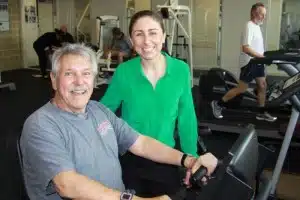
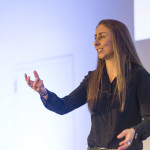
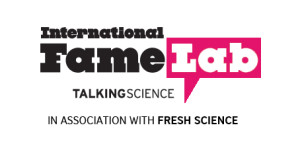
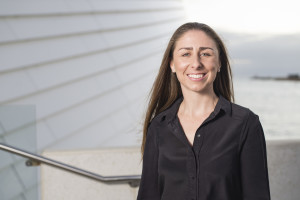
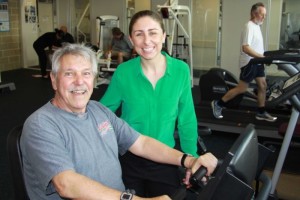
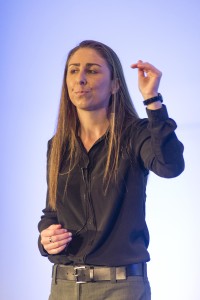
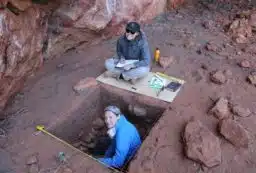


 Fresh Science is on hold for 2022. We will be back in 2023.
Fresh Science is on hold for 2022. We will be back in 2023.